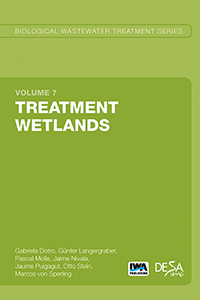About the author
Name and title:
Marcos von Sperling, PhD
Areas of expertise:
Wastewater treatment
Marcos von Sperling is author of several IWA Publishing publications, including co-authoring new Open Access text Treatment Wetlands. He is also Editor for Journal of Water Sanitation and Hygiene for Development.
Questions
This year, the UN’s World Water Day is dedicated to the concept of “Nature for Water”. What do you think/hope this will achieve?
I think that, by selecting such a theme, more focus will be given to the essential interaction between nature and water. Even though this concept may be clear to most people, it is usually forgotten when taking decisions or establishing priorities for action. It is so simple, that it is easy to underrate it. Yet, in its simplicity should lie its strength, and, from population to decision-makers, this powerful connection should be sought and put into practice.
Why are nature-based solutions and environmental considerations in water important?
Water cycle is part of nature, and is dramatically influenced by anthropic activities, both in terms of water quantity and quality. We can learn with nature and use some of its ecological principles in order to devise or adapt technologies that best serve people and, ultimately, the environment. Also, by better understanding nature´s working principles, we can better respect them and preserve our resources, including water. So easy to say, but so difficult to put into practice …
In recent years in the water industry, what do you think is the most significant development in nature-based solutions?
Nature-based technologies have been successfully developed and implemented at full scale. But I think the most important developments are in the better understanding of the working principles of these nature-based solutions and, from this, learning how to better design them and enhance their performance. Engineers, biologists, chemists, architects, social scientists and specialists in other areas are now working together, sharing their common knowledge, and integrating the advances in each individual branch into wide-reaching solutions that are much more prone to success.
How might you suggest people get involved and/or learn more about topics within “Nature for Water”?
There are several possibilities for this. But I would like to stress the importance of producing internet-based open-access texts that can reach the population on a worldwide basis, with special emphasis on developing countries. We need texts, not only directed to researchers and practitioners, but also basic texts geared to laypersons, who ultimately will be the beneficiaries of the technical solutions implemented. Regarding technical texts, I think IWA has an instrumental role in disseminating knowledge throughout the world and ensuring the production of useful open-access titles should always be one of its missions. Treatment Wetlands and Waste Stabilization Ponds are very good examples of IWA Publishing open-access textbooks that cover nature-based wastewater treatment solutions and are freely available for downloading here.
